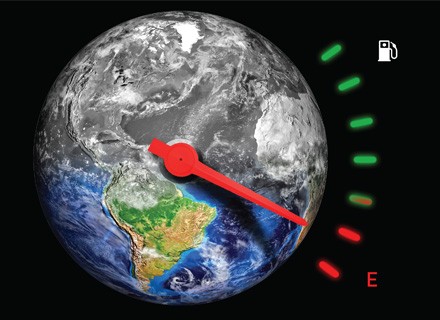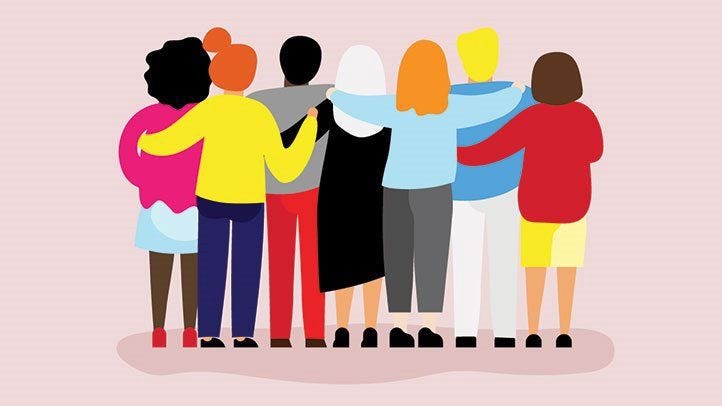The laws of thermodynamics describe the behaviors of energy in systems. Famously, the 1st law states that energy cannot be created or destroyed; energy can only change forms. This change in form is more specifically captured in the 2nd law of thermodynamics, which in part indicates that every energy transfer will result in some amount of energy becoming less useful for performing work. (Note: Please excuse this biologist’s very loose interpretation of the laws of energy.)
Though not exactly what the revered minds of the last several centuries aimed to categorize, these laws provide a useful parallel to understand our human behaviors—and limitations—around productive energy.

In conversations with many PIs and research leaders around the US and beyond, I frequently hear that there are not enough hours in the day to finish all of the work. This commonly can lead them to work on weekends, evenings, and holidays to try to catch up. I can’t count how many investigators have said they look forward to holidays… when they’ll get fewer interruptions and can make headway on those languishing to-do items.
Some periods like this are bound to happen: unexpected emergencies, unanticipated deadlines, interruptions in support personnel hours, projects that take longer than expected.
However, if you find yourself frequently saying, “Things should be better in a couple of weeks, once [item X] is out of the way, and I’ll be able to take a breather then,” only to say it again a few weeks later, you may be heading for an energy crisis.

There truly aren’t enough hours in the day to get all the work done; and just as there isn’t a way to create more time, there also isn’t a way to create more energy to get all the things done. You only have so much energy to give each day, and that energy needs to be replenished (hello, sleep!).
Think of yourself like a rechargeable battery—some of your energy goes to just staying alive each day, and the remaining limited amount is available for you to use toward work, play, etc. But energy has to be transferred back in to be available for use each day. People who are in an energy crisis are typically only putting a little charge back into the battery and going way too long in between fill-ups. Believe me, I’ve been there.
One driver of this, at least in the US, is that, as a society, Americans place value on work and productivity—specifically the things attached to dollars. In a career that requires a lot of intellectual output, like research, some of the most important parts of the job do not appear directly attached to the dollars.
In fact, what often makes researchers good at their roles is the consideration of ideas. Yet, many researchers I speak to are not making time for “percolating” their ideas, or even for reading others’ ideas. Why? Usually it’s something along the lines of, “Well, it doesn’t look like I’m doing anything, or it doesn’t directly result in a task fulfilled, so I have to prioritize other things.”
What’s more, this prioritization of tasks—typically showing up as the “tyranny of the urgent”—often means that there is little rest and recharge time. Rest and recharge time is not only crucial for averting an energy crisis, but it also gives the mental space that is so essential for the percolation of ideas. What might change if you include rest/recharge/play time as one of your priorities?
Making this shift isn’t always easy, but it’s often necessary. So how do you get there?

- Eliminate what can be eliminated; delegate what can be delegated. First, recognize that the to-do list is never-ending, and accept that as a fact. If you are always focused on clearing it, you’ll often be disappointed. One investigator I recently talked with said that the only real strategy they found for balancing their to-do list against their available time is to ignore the low-priority tasks altogether.
Delegating tasks that don’t require your unique skillset, or that you hate, is a powerful way to open yourself to focus on what sparks your energy.
- Most opportunities are not really once-in-a-lifetime; there will be more chances. For a while, I got stuck in thinking that every opportunity was an important opportunity. But this just led me to experience turmoil and regret (and overwork) when I said yes to something I didn’t have the time or energy to fulfill.
To protect both your time and energy, implement a system for assessing how new opportunities or requests will affect each of these resources. Become intentional in considering opportunities: in other words, give yourself some time—both to think and to gather more info—before responding. Graciously say no when necessary.
- Remember that doing things that support your wellbeing will help you to show up well for work. Identify the parts of life that help you to rest and recharge, and schedule them in. Adding a daily nature walk (or whatever helps you to recharge) to your calendar might seem frivolous, but your calendar is already a reflection of your actual priorities; placing your recharge time there helps prioritize it.
While putting it on the calendar is a great first step, it doesn’t necessarily mean you’ll honor that time. So, remind yourself of the importance and value of the time for your overall wellbeing and productivity, allow yourself some grace (progress rather than perfection), and start practicing this new priority. Note: if your calendar is visible to colleagues and you don’t want them to know that every day from 1-1:30 pm is when you have your own private dance party (just me?), simply mark that time as “busy” or “paperwork”.

Finally, from time to time check in with yourself, or have a friend or colleague check in with you, to help you maintain this new priority. Sometimes you may come into a brief period of intense effort; this is ok and in most cases will not be detrimental if 1) you’ve been managing your energy well when that intense time hits and 2) you can establish an endpoint where you can shift back toward your recharging routine.
Protect your time and you’ll go a long way toward protecting your energy as well. But remember that regular rechargings are the key to sustainability.
If these tips resonated with you, and you’d like to dive deeper, CareerVolt recently hosted some free Time and Overwhelm Transformation workshops. Drop us a note if you’d like to be notified of our next workshop date!
